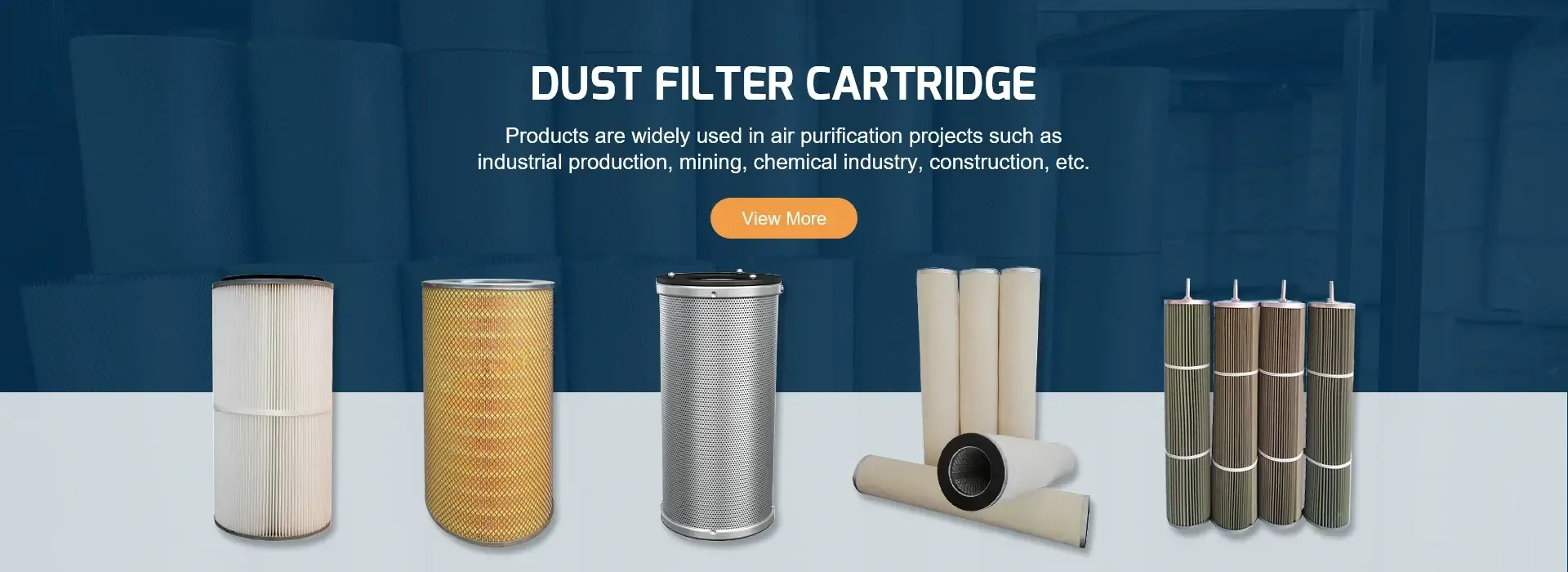 Tel:
+8615930870079
Tel:
+8615930870079
Nov . 22, 2024 07:02 Back to list
industrial dust collector cartridge filters
Understanding Industrial Dust Collector Cartridge Filters
In various industrial settings, maintaining air quality is a vital concern that directly impacts worker health and safety. One of the most effective ways to control dust and pollutants in the air is through the use of industrial dust collector systems equipped with cartridge filters. These systems provide an efficient method for capturing airborne particles, ensuring cleaner air and compliance with environmental regulations.
The Importance of Dust Collection
Dust generation occurs in many industries, including manufacturing, construction, mining, and food processing. Exposure to dust not only poses health risks, including respiratory issues, skin irritation, and long-term diseases such as silicosis, but it can also lead to decreased productivity and increased workplace accidents. Implementing a robust dust collection system helps mitigate these risks by trapping harmful particles and preventing them from recirculating into the environment.
How Industrial Dust Collector Cartridge Filters Work
Cartridge filters are typically cylindrical or conical in shape and are housed within a dust collector system. These filters operate on the principle of surface filtration. As dust-laden air is drawn into the collector, the particles are trapped on the surface of the filter material, while clean air is released back into the workspace.
One of the main advantages of cartridge filters is their large surface area, which allows for higher dust retention capacity. This feature enables the system to handle significant amounts of dust without requiring frequent filter changes. Additionally, cartridge filters are designed to facilitate easy cleaning, often utilizing a pulse jet cleaning mechanism or a mechanical shaking technique to dislodge accumulated dust and restore the filter's efficiency.
Types of Cartridge Filters
There are several types of cartridge filters available, each designed for specific applications. Common filter materials include
1. Cellulose Often used for general applications, cellulose filters are cost-effective but less efficient in capturing finer particles. 2. Polyester This synthetic material has superior dust-holding capacity and is resistant to moisture, making it suitable for humid environments.
industrial dust collector cartridge filters

4. Metal Filters Used in high-temperature applications, metal filters are durable and can be cleaned and reused, providing a longer lifespan than their non-metal counterparts.
Benefits of Cartridge Filters
1. Efficiency Cartridge filters can achieve high levels of filtration efficiency, often over 99%. This efficiency is crucial for meeting regulatory standards and protecting worker health.
2. Compact Design Cartridge filters require less space compared to traditional bag filters, making them ideal for facilities with limited space.
3. Cost-Effectiveness While the initial investment can be higher, cartridge filters often lead to reduced operational costs due to lower energy consumption and longer service life.
4. Environmental Compliance By effectively capturing dust and airborne particles, businesses can ensure compliance with environmental regulations, avoiding fines and enhancing their reputation.
Maintenance Considerations
Regular maintenance of dust collector systems and cartridge filters is essential for optimal performance. This includes routine inspections, cleaning, and timely replacements of filters to prevent system failures. Businesses should establish a maintenance schedule based on the operating conditions and dust load to ensure consistent air quality.
Conclusion
Industrial dust collector cartridge filters play a crucial role in maintaining clean air in various workplaces. The efficiency and effectiveness of these filters not only contribute to a healthier work environment but also help businesses comply with environmental regulations. By understanding the workings, types, and benefits of cartridge filters, companies can make informed decisions about their dust collection systems, leading to successful operations and improved employee wellbeing. Investing in high-quality cartridge filters and maintaining them properly is a step towards a safer, cleaner, and more productive industrial setting.
-
Nano Fiber Technology: Revolutionizing Cartridge Dust Collector FiltersNewsAug.06,2025
-
How Activated Carbon Air Cartridges Eliminate OdorsNewsAug.06,2025
-
Dust Filter Cartridge Handling Fine Particulate MatterNewsAug.06,2025
-
Cartridge Dust Collector Filter for Welding Fume ExtractionNewsAug.06,2025
-
Activated Carbon Filter Cartridge Effectiveness Against VOCsNewsAug.06,2025
-
Activated Carbon Air Filter Cartridge Benefits ExplainedNewsAug.06,2025

 Email:
Email:





